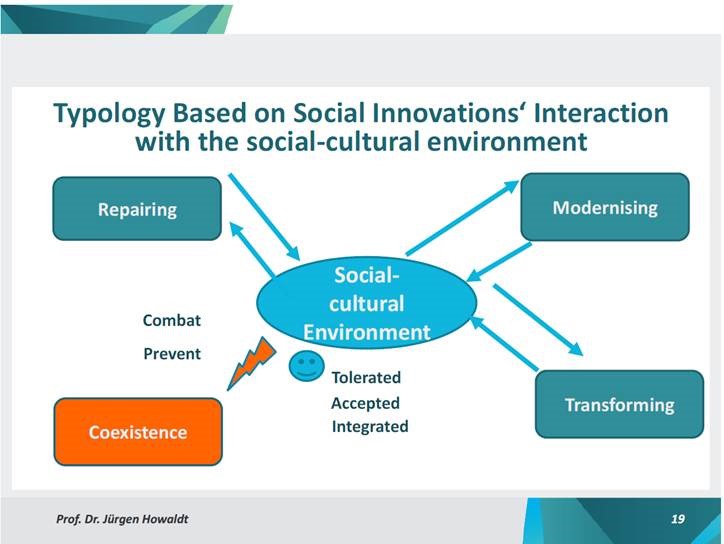The last week of October, TRANSIT was invited to present its results at the Final Conference: Social Innovation: Driving Force of Social Change of our ‘sister project’ SI-DRIVE at the Academy of Sciences in Brussels.
Both projects have been funded to develop social innovation theory and they are providing truly complementary insights on the field. While TRANSIT studies the relation of social innovation with transformative change focusing on networked social innovation initiatives, SI-Drive studies more general the interactions of social innovations with the societal context and specifically focuses on policy implications.
The first day of the final conference focused on the state of the art of research focusing on the nexus of social innovation and social change. Jürgen Howaldt, scientific coordinator of the SI-DRIVE consortium, kicked off the day by presenting the SI-DRIVE results. The consortium has taken on the tremendous task of mapping and analysing 1005 social innovations cases worldwide as the basis for their theorising. This mapping provides major insights amongst others into the actors involved in social innovation and their ways of scaling (e.g. imitation, multiplication) and their transfer potential. Overall, the research proposes that social innovations interact with their surroundings in four ways: they repair, modernise, transform or co-exist with the socio-cultural environment.

The work has been done with a strong policy focus and specifically identified seven policy fields that are addressed through social innovations: Education, Employment, Environment, Energy Supply, Transport & Mobility, Health & Social Care, Poverty Reduction & Sustainable Development. The presentation is shared here.
A highlight of the conference was the presentation of Canadian scholar Frances Westley, advisory board member of both the SI-DRIVE and our TRANSIT project. She shared the main insights from her work at the Waterloo Institute of Social Innovation and Resilience, which will be published in an upcoming book on “The evolution of social innovation. Building Resilience Through Transitions”. The basis of this work is the analysis of a number of truly historical case studies, including amongst others American National Parks, the intelligence test and reproductive rights. From a cross-case analysis, the team derived seven interesting patterns regarding institutional change, which are partly echoed by TRANSIT insights. These include the following:
Her stimulating talk ended with the formulation of six reflexive questions for social innovations to become more resilient. Her presentation is shared here.
Credits: TU Dortmund University
The afternoon session featured three talks and a panel discussion under the header of “Increasing the impact of social innovation”. Kriss Deiglmeier, CEO of Tides and formerly CE of Stanford’s Social Innovation Center kicked off the session by identifying the ‘Stagnation Chasm’ as the point in the development of a social innovation where it gets stuck and loses moment. She identified the following reasons: 1) inadequate Funding, 2) a fragmented Ecosystem and 3) insufficient Leadership in her presentation. She was followed by two presentations of research projects and their insights: the presentation of TRANSIT by Julia Wittmayer, and the presentation of insights from the CRESSI project by Nadia von Jacobi. The latter focuses on whether (and how) social innovation can reduce marginalization and looks forward to hosting their own final conference in Oxford on January 26th, 2018.
Credits: TU Dortmund University
Stay informed. Subscribe for project updates by e-mail.